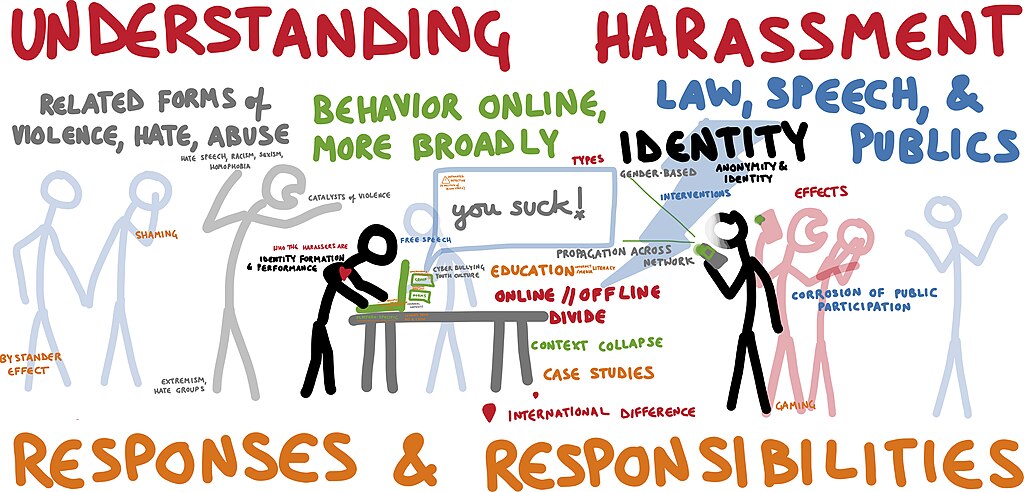Colloqium #28
22 June 2024


Description
This presentation will present notions of harassment, as found in literature, such as the UNICEF “Dealing with Harassment” Complaintant´s Guide.
This includes a discussion on a subset of examples, picking out specific concepts and circumstances.
The academic, analytic and sciological distinctions are used to understand the general landscape of the issue at hand. Harassment can be distinguished from mobbing or discrimination, even though many aspects of these concepts overlap. The guide is specifically designed to enable anyone to determine, if they are being harassed.
We will talk about the psychological impact of harassment on harassee and people in the direct environment and focus on a scenario concerning the aftermath of a harassment case. It will not include gory or radical examples, which of course are very possible and real, but are rather clearly categorized.
Harassment scenarios can arise out of greyzones, which makes the classification of a behaviour as harassment all the more difficult.
To be aware of criteria to go through, and thusly be able to make a decision about whether to- and how to act, is a fundamental tool in the toolbox of life.
This presentation will hopefully help you increase your knowledge about what can be classified as harassment and why, and which steps are helpful reactions. May you be a victim or bystander.
Speakers
Auris–E. Lipinski: Auris-E. Lipinski is a studied philosophy teacher with experience in the tech industry, providing one-on-one lessons and tech-communication for companies and entrepeneurs, as well as language trainings and simultaneous translations. While studying Philosophy & English at Humboldt University, Berlin, she became a scientific assistant at VIOM GmbH. She founded PhenCoCo in the aftermath of university seminars like “Konstruktion und Phänomenologie der Wahrnehmung”, Phänomenologie und Kognition" (M. Thiering) and “Computation und Geist” (J. Bach). She has been involved in different research and development projects, guiding her academic interests towards way finding and cognitive preconditions for navigation, both computational and phenomenological. This includes working on spacial concepts found in philosophy, psychology and robotics, subsuming Gestalt theory, embodiment theories, language/ concept importance, association and intuition. Her personal interests lie in current issues in philosophy, technology and science, specifically navigation, optimisation, and telematics. The last years have added attention to so called ‘AI’ versions and their impact on society, as well as propaganda methods and discrimination topics.